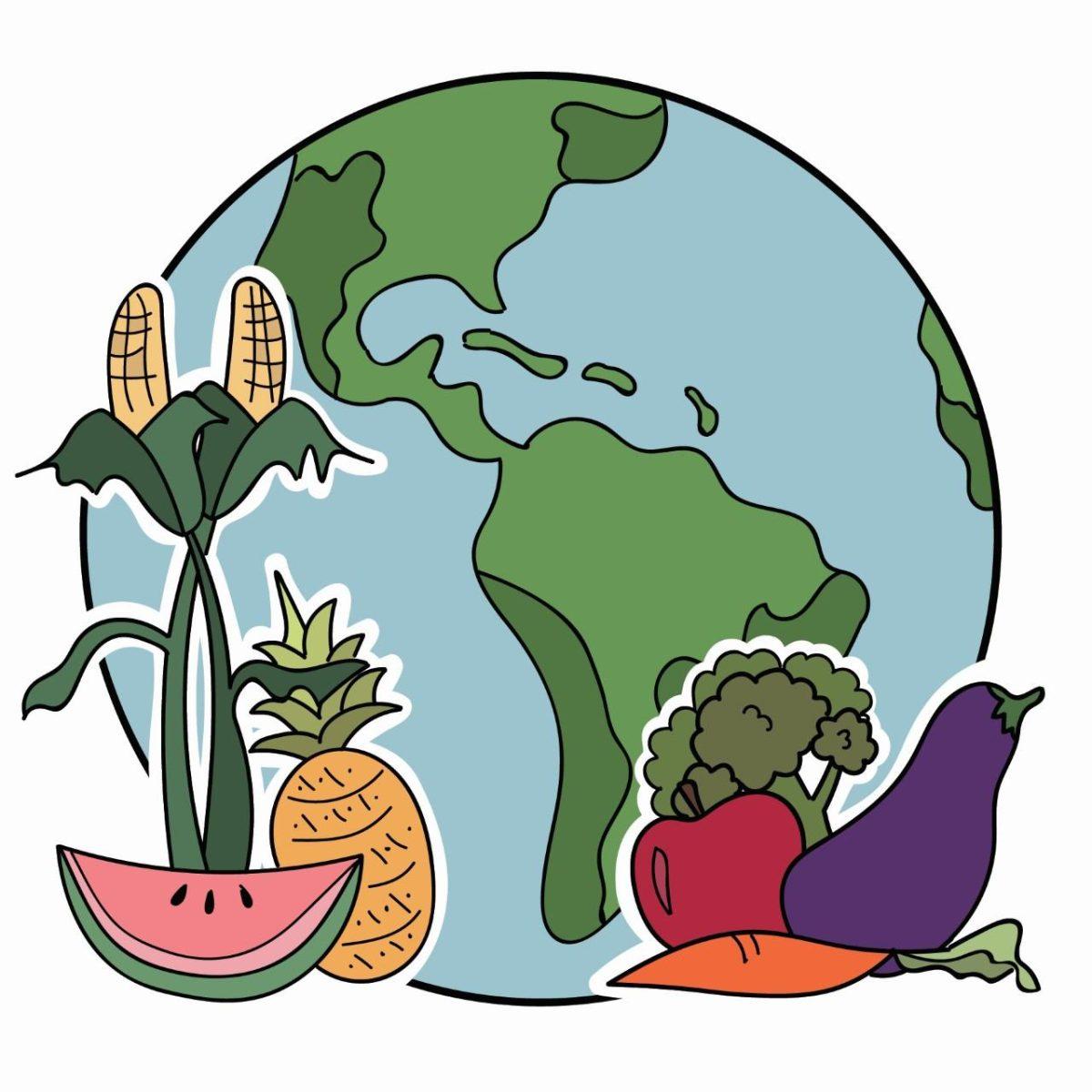As I sat alone at Buffalo Wild Wings chowing down on a few of my favorite boneless wings, I came across an article that made me take a step back and rethink my life — and my wings.
The article said that if the human population cut back on its meat intake, world hunger could be solved by 2030. That claim was so shocking I didn’t believe I had read it correctly. I continued to re-read the paragraph about four times to make sure I wasn’t going crazy. That’s only thirteen years, away, and people are saying that this seemingly unconquerable problem could be solved?
According to One Green Planet, approximately 70 percent of all grain produced in the United States is fed to farm animals, not humans. So much valuable grain that could be turned into meals for the impoverished is being used to plump up animals that are going to be butchered. Yes, animals also feed people. But one animal can’t feed as many people as the grain used to feed said animal.
Additionally, water is being dumped into the industrial livestock production. On average, it takes 4,200 gallons of water per day to produce a meat eater’s diet, while a plant-based diet uses 300 gallons of water per day. As of 2013, 783 million people did not have access to clean water. According to a study published by The Vegetarian Times, only 3.2 percent of adults in the United States have adopted a vegetarian lifestlye. That percentage shows how little we know or care to know about ending the world hunger epidemic.
Are our steak dinners worth the lives of thousands of hungry families? If you hesitated to answer “no,” you have some soul searching to do. It’s easy to disassociate the two because we don’t always directly see the impact of others from our choices.
The simple breakdown is this: If we continue on this carnivorous western diet, we are accepting and turning a blind eye to the one in nine starving people in our world.
This egotistical lifestyle can’t remain the norm. I’ve never been a vegetarian, but after doing research and hearing just how much my diet affects others, I’ve opened my eyes. Over the past two weeks, I have been eating little to no meat. If more individuals would take the time to read about the benefits vegetarianism can have on the body and the world in general, I believe they would be doing the same.
It’s irresponsible to tune out problems our world is facing right now. It’s time to step up, become aware of the predicament and change your lifestyle in a way that will positively work toward a solution.
2030 is a lot closer than it sounds. If we can begin a revolution that would terminate world hunger, why would we not do everything we can? Little consistent changes toward a more vegetarian lifestyle will make progress that impacts our population as a whole.
Casey Pimentel is an 18-year-old mass communication freshman from The Woodlands, Texas.
Opinion: Adjusting diets could lead to an end in world hunger
April 17, 2017
world hunger





